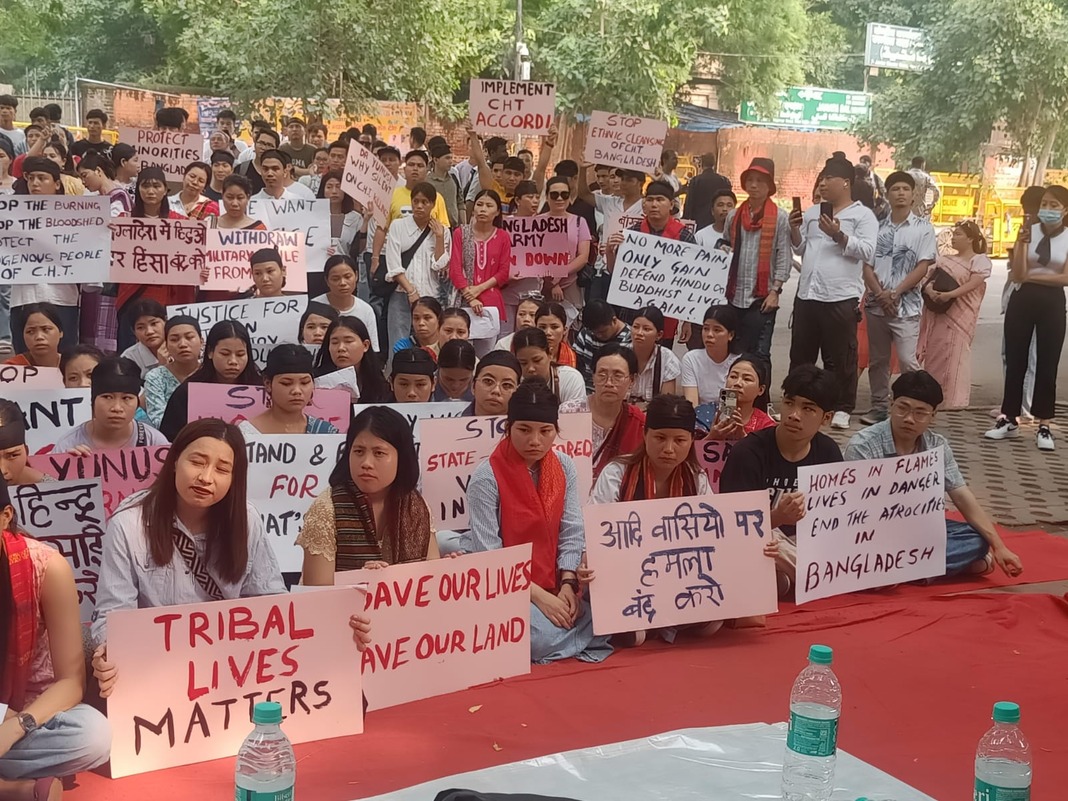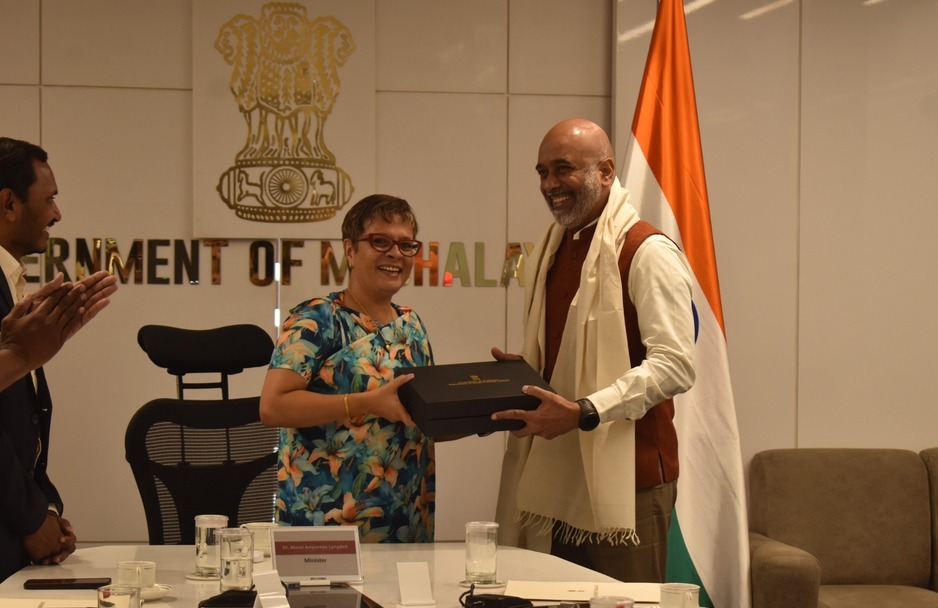CDFI blames ISI, Islamic terrorists for Bangladesh unrest
Guwahati Sept 24: In view of the large-scale attack on minorities in Bangladesh, the Chakma organizations in India demanded the Indian government impose a ban on the export of essential and industrial products to Bangladesh.
Several hundreds of Chakma people staged a protest at Jantar Mantar in New Delhi on Tuesday to register their protest against violence targeting minority communities, particularly the indigenous hill tribes in Bangladesh.
Suhas Chakma, founder of the Chakma Development Foundation of India (CDFI), called on Prime Minister Narendra Modi to take decisive action by halting the export of essential and industrial products to Bangladesh, including food, fuels, energy products, industrial raw materials, and construction materials.
Chakma emphasized that such measures are necessary until Bangladesh establishes accountability for each case of attacks on these communities. He warned that without these steps, Bangladesh could devolve into a situation reminiscent of East Pakistan, where indigenous and religious minorities would be left with no safe haven. Chakma sees these “drastic measures” as being in the long-term interest of both Bangladesh and its citizens.
He also expressed appreciation for Prime Minister Modi’s decision not to hold talks with Dr. Mohammed Yunus, the chief advisor of Bangladesh’s interim government, during the ongoing UN General Assembly session in New York. However, Chakma stressed that this diplomatic stance must be followed by concrete actions to address the severity of the attacks on minorities.
This violence took place on September 19 and 20, when illegal settlers from the plains and troops of the Bangladesh Army launched coordinated attacks on indigenous communities. At least five members of these communities were killed, over 70 were injured, and approximately 200 houses and businesses were set ablaze.
The attacks were reportedly sparked by the death of Muhammad Mamun, an alleged motorcycle thief, on September 18. However, the FIR lodged by Mukta Akhter, Mamun’s wife, at Khagrachari Police Station accused Muslim settlers, led by Mohammed Shakil, of being responsible for Mamun’s death, contradicting the narrative used to justify the violence against indigenous people.
The Chakma organizations condemned the organized violence and expressed deep concern over the role of the Bangladesh Army in the attacks. They called for stricter international scrutiny and urged the Indian government to take strong measures, including halting exports to Bangladesh, as a way to pressure the neighbouring country into addressing these human rights violations.
“Indigenous hill people in Bangladesh, particularly those working in plain districts such as Chittagong, Dhaka, and Savar, are facing increasing racial discrimination and acts of violence due to their distinct physical appearance. These attacks, targeting indigenous people in the outskirts of Dhaka where many work in Export Processing Zones, have made it dangerous for them to travel or move freely in these areas,” Chakma alleged.
In a memorandum to Prime Minister Narendra Modi, Chakma leaders highlighted these escalating concerns. They mentioned that on September 21, three advisors to Bangladesh’s interim government visited the CHTs, a region where indigenous people have faced particularly severe violence. One of the advisors, AF Hasan Arif, who oversees Local Government, Rural Development (LGRD), and Cooperatives, reportedly blamed the unrest on “external conspiracies” during a meeting with the US Embassy’s Charge d’ Affaires in Dhaka.
The Chakma leaders expressed grave concern over the nature of the attacks, which were organized by illegal settlers and the Bangladesh Army. They suggested the possibility that foreign Islamic terrorists may have been involved in inciting the violence against the indigenous hill tribes. This raises broader concerns about regional instability and the safety of minority communities in Bangladesh.
Tejang Chakma, Director of the CDFI, raised concerns about the potential involvement of Pakistan’s Inter-Services Intelligence (ISI) and Islamic terrorists in the ongoing violence against indigenous hill tribes and religious minorities in Bangladesh. He emphasized that these attacks are not isolated to the hill tribes but are part of a broader pattern of organized violence targeting Hindu and other religious minorities under Bangladesh’s caretaker government.
Rup Singh Chakma, president of the Arunachal Pradesh Chakma Students Union (APCSU), cited a report from Prothom Alo that highlighted the widespread attacks on minorities between August 5 and 20, shortly after the fall of former Prime Minister Sheikh Hasina’s government. According to the report, at least 1,090 homes, businesses, and places of worship belonging to minority communities were damaged during this period.
Santosh Baburah Chakma, president of the Noida Chakma Welfare and Cultural Society, criticized the Bangladesh government for failing to investigate these gross human rights violations. He specifically condemned Dr Mohammed Yunus, the chief advisor of the interim government, for disgracefully blaming the Hindus’ affiliation with the Awami League as a reason for the attacks, implying that political affiliation could justify such violence.




